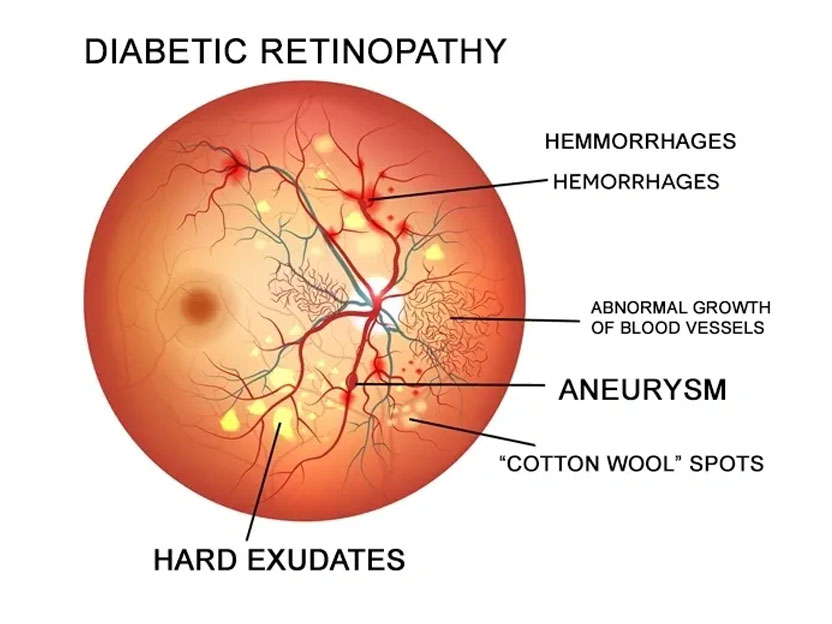Diabetic Retinopathy
What is Diabetic Retinopathy?
Longstanding high blood sugars can damage the tiny blood vessels or capillaries in the retina which is the light sensitive portion at the back of the eye. These blood vessels in become fragile and can bleed or leak of protein and fluid into the retina, leading to decrease and even loss of vision. Over time, new abnormal blood vessels can also grow on the surface of the retina, which are prone to bleeding and scarring, and can cause loss of vision. This is diabetic retinopathy. When diabetes affects the central part of the retina called the macula, the disease is diabetic maculopathy or diabetic macular edema. Diabetes is also associated with an increased risk of incidence and progression of glaucoma and cataract.
What are the stages of Diabetic Retinopathy?
Diabetic Retinopathy has four stages:
- Mild Nonproliferative Retinopathy
- Moderate Nonproliferative Retinopathy
- Severe Nonproliferative Retinopathy
- Proliferative Retinopathy
How does Diabetic Retinopathy cause vision loss?
Blood vessels damaged from Diabetic Retinopathy can cause vision loss in two ways:
- 1. Fragile, abnormal blood vessels can develop and leak blood into the center of the eye, blurring vision. This is proliferative retinopathy and is the fourth and most advanced stage of the disease.
- 2. Fluid can leak into the center of the macula, the part of the eye where sharp, straight-ahead vision occurs. The fluid makes the macula swell, blurring vision. This condition is called Macular Edema. It can happen at any stage of Diabetic Retinopathy, although it is more likely to occur as the disease progresses. About half of the people with proliferative retinopathy also have Macular Edema.
Call Us About Diabetic Retinopathy If:-
- You or your child has been diagnosed with diabetes and you have not discussed retinopathy and routine eye exams with your doctor.
- You experience either gradual or sudden loss of vision.
- You have diabetes and are considering pregnancy.
- You are having trouble sticking to your doctor's recommendations for controlling blood sugar.
You have vision loss and would like to discuss options for improving your vision.

KEY POINTS TO REMEMBER
- If you have diabetes, or a family history of diabetes, you need to pay special attention to your EYES before it’s too late.
- Failing vision could be the first sign of damage being caused to your virtual organs due to high sugar levels.
- There are no signs and symptoms in the early stages of Diabetic Retinopathy.
- It starts with blurred vision, causing problems while reading or driving. Gradually if the blood vessels leak, it feels like black spots which may or may not go away


